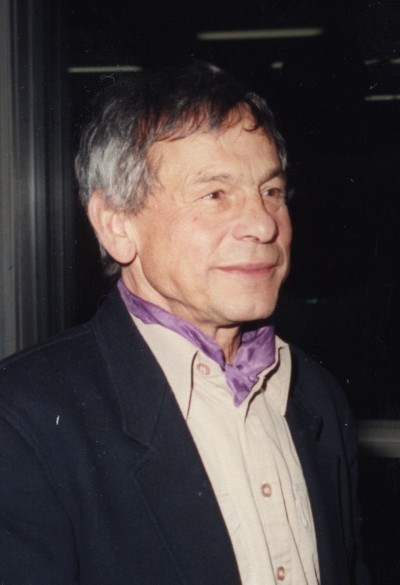Prof. emer. Albert Schmid
Albert Schmid was born 9 November 1929 in Biberach (Riss) near Ulm, Germany. After graduating from Wieland-Oberschule in Biberach he joined Technische Hochschule Karlsruhe to study physics. He obtained the degree Diplomphysiker in 1956 and the doctoral degree Dr.rer.nat. in 1960, for experimental work in atomic physics and plasma physics. In 1960 he became assistant in the theoretical physics group at the TH Karlsruhe, where he stayed till 1970. In 1966 he obtained the Habilitation degree for work on a time-dependent Ginzburg-Landau theory of superconductors. In that time period he went for a first extended research stay, 1964-65 to the University of Urbana, Illinois, USA, joining the group of John Bardeen. A second stay followed 1968-69 as a Senior Scientist Fellow of N.S.F. at the Stevens Institute of Technology, Hoboken, NJ, USA. In 1970 he spent several months as a visiting scientist at the Research Institute for Theoretical Physics of the University of Helsinki, Finland. In 1970 Albert Schmid accepted a full professor position at the newly founded University of Dortmund, where he had a big part in establishing the physics institute and shaping the physics program. Six years later he moved back to Karlsruhe, where he founded and directed the Institut für Theorie der Kondensierten Materie until his retirement in 1994. During that time he spent three longer periods on sabbatical leave 1979-80 at the Institute for Theoretical Physics, University of California, Santa Barbara, USA, 1983-84 at the Ørsted Institute, University of Copenhagen, Denmark, and 1988-89 at the University of Florida, Gainesville, USA.
Albert Schmid was an internationally leading theoretical physicist in the area of condensed matter physics and quantum statistical physics. He pioneered several of the by now well established concepts in the areas:
- dynamical critical fluctuations in superconductors
- kinetic theory of superconductors out of equilibrium
- quantum corrections to electron transport in disordered systems
- dissipative quantum mechanics
Several of Albert Schmid's works stand out as path-breaking contributions. In particular his early studies of the interplay of disorder and interaction was among the first to recognize and address the problems now known as mesoscopic physics.
Albert Schmid was a great theoretical physicist with a deep understanding of physics, admirable creativity, highly independent thinking and outstanding mathematical ability. In pursuit of the scientific truth he was passionate and uncompromising. As a person he was open, engaging, extremely charming with his friends, and sharing freely his highly educated view of the world.
Albert Schmid has also been a dedicated teacher. His lecture courses are characterized by originality and clarity of exposition. He has been a supervisor of several students, who went on to become professors and leading researchers at Universities in Germany, among them Gerd Schön, Ulrich Eckern, Rainer Kree.
The work of Albert Schmid received high recognition and appreciation by the scientific community. He received the Fritz London Memorial Award in 1993. Albert Schmid is the author of about 70 scientific papers, many of them highly influential and frequently cited in the literature. Even more than ten years after his death many of his works are an indispensable resource in current research activities.
Albert Schmid died on January 31st 1998 at the age of 68.

